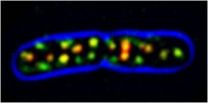(Press-News.org) DETROIT – Emergency department physicians are frustrated and burned out from treating patients who frequent the ED for their care, according to a Henry Ford Hospital survey of physicians from across the country.
The survey found that 59 percent of physicians acknowledged having less empathy for so-called frequent users than other patients, and 77 percent held bias for frequent users. Physicians defined frequent users in the survey as patients who visit the ED at least 10 times a year.
Other highlights:
91 percent of physicians say frequent users pose challenges for the ED.
71 percent of physicians believe a program to manage frequent users is necessary.
82 percent of physicians say they feel some level of burnout.
Experience did not shield physicians from burnout.
Physicians who responded to the survey comprised seasoned professionals, up-and-coming residents and alumni whose experience ranged from one year to 30 years. They represented every state, except Alaska.
While frequent users long have been linked with provoking negative attitudes in the ED, the Henry Ford findings are believed to be the first time physicians' opinions have been measured.
The findings are being presented at the annual meeting of the Society for Academic Emergency Medicine June 1-5 in Boston.
"Our findings should be a wake-up call for hospital administrators to look at ways to manage these types of patients," says Jennifer Peltzer-Jones, Psy.D., a clinical psychologist at Henry Ford's Department of Emergency Medicine who led the survey. In 2004, Henry Ford created created the Community Resources for Emergency Department Overuse (CREDO) in response to increased frequent users in its ED.
"Only 31 percent of the physicians surveyed said they had a program to help manage patients who are frequent users. Hospital administrators have to realize that these patients are invoking burnout and staff want and need additional resources," Dr. Peltzer-Jones says.
Findings were compiled from an 18-question, anonymous survey randomly sent to 1,500 physicians nationally between July-October 2010. Questions were multiple choice, and data was analyzed using the common statistical test Chi Square. Of the 1,500 surveys sent, 418 physicians responded.
"People go to the Emergency Department because it's accessible 24/7," Dr. Peltzer-Jones says. "However, the ED is meant for emergent care, not primary care. ED physicians are not equipped to be primary care providers and case managers."
Dr. Peltzer-Jones says many social factors contribute to patients frequently using the ED: lack of access to primary and specialty care, homelessness, lack of transportation for appointments, substance abuse, psychiatric disorders and chronic medical conditions. Contrary to popular belief, many frequent users do have some type of medical insurance, she says.
"Physicians are feeling frustrated because they want to assist their patients who have emergent care issues. But they find they are managing chronic medical and social problems with very little resources. The Emergency Department is supposed to be the last, not first, resource for patient care. That's not the case with the frequent user population," Dr. Peltzer-Jones says.
###
The survey was funded by Henry Ford Hospital.
Emergency department physicians growing weary of frequent users
2011-06-04
ELSE PRESS RELEASES FROM THIS DATE:
Tsunami sensor detects mysterious background signal in Panama
2011-06-04
An unusual signal detected by the seismic monitoring station at the Smithsonian Tropical Research Institute's research facility on Barro Colorado Island results from waves in Lake Gatun, the reservoir that forms the Panama Canal channel, scientists report. Understanding seismic background signals leads to improved earthquake and tsunami detection in the Caribbean region where 100 tsunamis have been reported in the past 500 years.
As part of a $37.5 million U.S. presidential initiative to improve earthquake monitoring following the devastating tsunami in the Indian Ocean ...
Helping the aged during natural disasters
2011-06-04
When earthquake, tsunami, tornado or flood strike, among the most vulnerable group are the elderly. Writing in the International Journal of Emergency Management, researchers in New Zealand suggest that emergency response plans must take into account the age-related needs of adults with regards to the personal and social resources they have available.
Robyn Tuohy and Christine Stephens of Massey University in Palmerston North, point out that elderly citizens are likely to experience the negative impacts of floods and other natural disasters partly because of age-related ...
New strategy to combat cystitis
2011-06-04
Brussels - One in three women will be faced at least once in her life with cystitis, for some the start of a constantly recurring infection. Cystitis is caused by Escherichia coli bacteria which fasten on to the wall of the bladder by means of thread-like structures (pili). Han Remaut of the VIB Department for Structural Biology Brussels, Vrije Universiteit Brussel reveals for the first time the complex interactions which lead to the formation of these pili. This knowledge can be used to develop new antibiotics to treat infections of the urinary tract.
Cystitis
Around ...
Letters from home may help prevent post-traumatic stress disorder in happily married soldiers
2011-06-04
A new study from the Journal of Traumatic Stress finds that for active-duty male soldiers in the U.S. Army who are happily married, communicating frequently with one's spouse through letters and emails during deployment may protect against the development of posttraumatic stress disorder (PTSD) symptoms after returning home.
After studying information from 193 married male Army soldiers who returned from military deployment within the past year, investigators found that more frequent spousal communication through "delayed" communication such as letters, care packages, ...
Fast track to vascular disease
2011-06-04
In Western societies, atherosclerosis of the arteries is one of the leading causes of death. Chronic, localized inflammation of the blood vessel wall facilitates the growth of fibrous plaques, which leads to narrowing or occlusion of the vessel, and thereby promotes heart attacks and stroke. The persistence of the inflammatory reaction is due to a loss of control over the activity of the immune system. So-called dendritic cells are known to play a central role in the adaptive immune response, functioning as activators of other classes of immune cells. Their precise contribution ...
Not all hospitals treat elderly the same
2011-06-04
TORONTO, Ont., June 3, 2011—Hospitals that provide quality care for young people do not always provide the same quality care for the elderly, a new study has found.
As our population ages and requires more healthcare, hospitals need to measure the quality of care they provide for the over 65s and implement programs to meet their distinct needs, said the study's author, Dr. Avery Nathens, trauma director at St. Michael's Hospital.
The study, published in the June issue of the Journal of the American College of Surgeons, evaluated the condition of elderly patients 30 ...
BUSM study finds older men more likely to lose the ability to orgasm due to gabapentin
2011-06-04
(Boston) - Boston University School of Medicine (BUSM) researchers have found that Gabapentin, (trade name Neurontin) a medication commonly used to treat neuropathic pain, seizures and biopolar disease in older and elderly patients, seems to have a higher incidence of anorgasmia, or failure to experience orgasm, than previously reported. This study appears in the current issue of the American Journal of Geriatric Pharmacotherapy.
Anticonvulsants are the fastest growing prescribed medication in the baby boomer generation. In patients 44-82 years old, anticonvulsants are ...
Bacterial roundabouts determine cell shape
2011-06-04
Almost all bacteria owe their structure to an outer cell wall that interacts closely with the supporting MreB protein inside the cell. As scientists at the Max Planck Institute for Biochemistry and at the French INRA now show, MreB molecules assemble into larger units, but not - as previously believed – into continuous helical structures. The circular movement of these units along the inside of the bacterial envelope is mediated by cell wall synthesis, which in turn requires the support of MreB. This mutual interaction may be a widespread phenomenon among bacteria and opens ...
Paper and computer workarounds challenge but may improve health IT
2011-06-04
INDIANAPOLIS – A new research study investigates the challenges that pen and paper workarounds or computerized communication breakdowns pose to the use of electronic health records. Understanding these challenges may lead to improved coordination of care supported by health IT.
Focusing on referrals by primary care physicians to specialists and communications from the specialists back to the referring physician, "Paper Persistence, Workarounds, and Communication Breakdowns in Computerized Consultation Management" appears in the July 2011 issue of the International Journal ...
Study finds vaccine extends recurrent GBM survival rates by 2 to 3 times
2011-06-04
In data presented at The American Society of Clinical Oncology (ASCO) Annual Meeting, cancer researchers found that the brain tumor vaccine HSPPC-96 for treating recurrent gliobastoma (GBM) has a favorable safety profile and extends survival by two to three times more than the current median survival rate. Patients in the study, conducted at University Hospitals Case Medical Center, University of California, San Francisco and Columbia University, were found to have a median survival of 11 months compared to current three to five month survival.
"The findings are very ...


